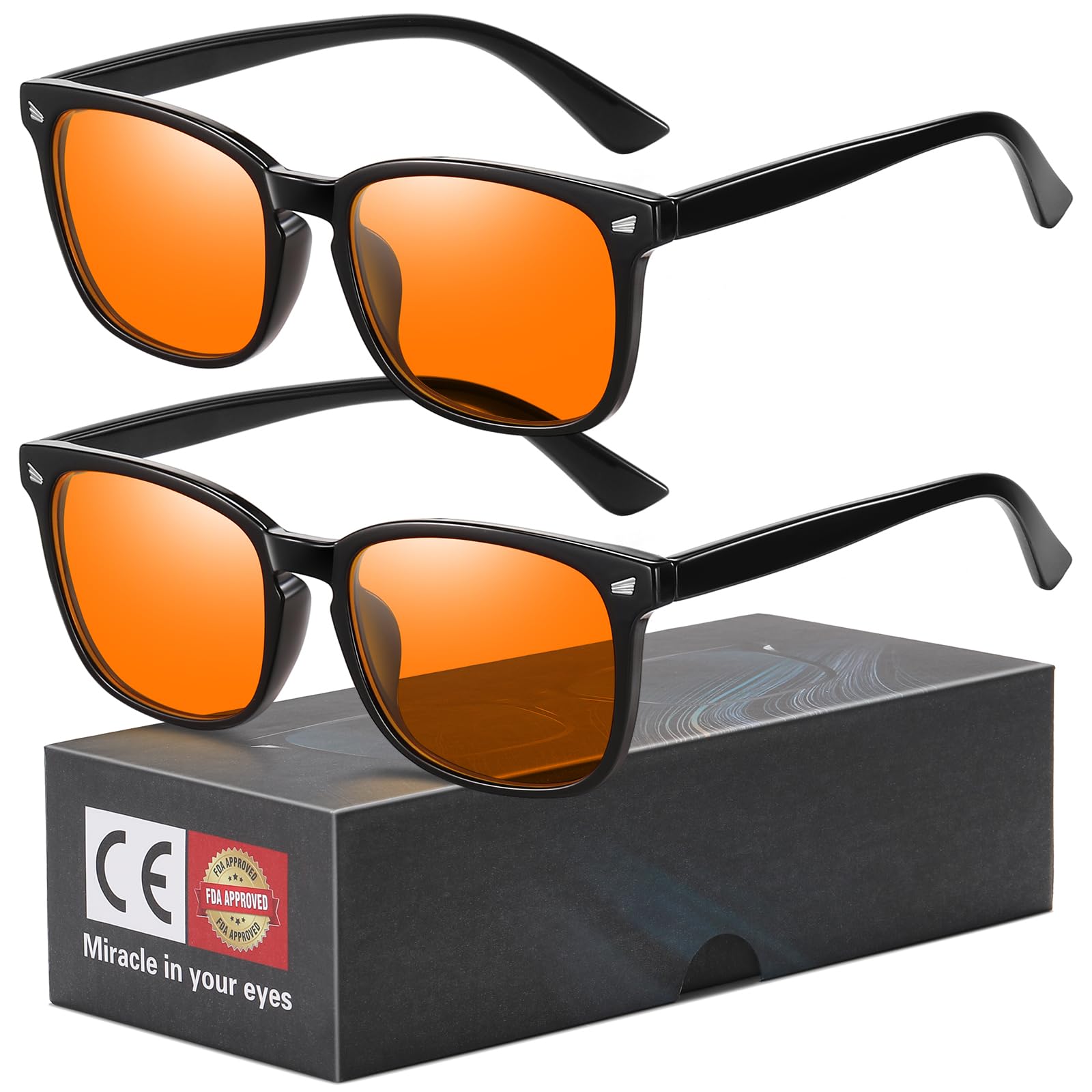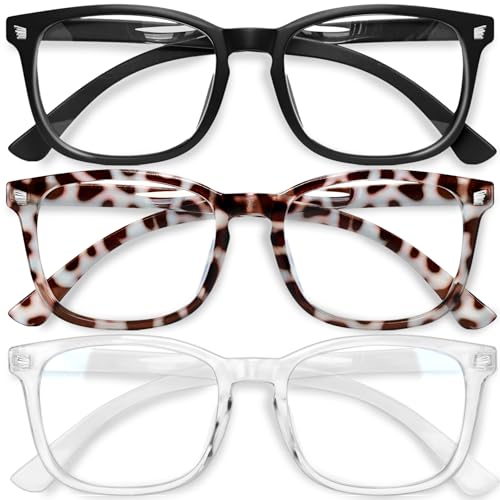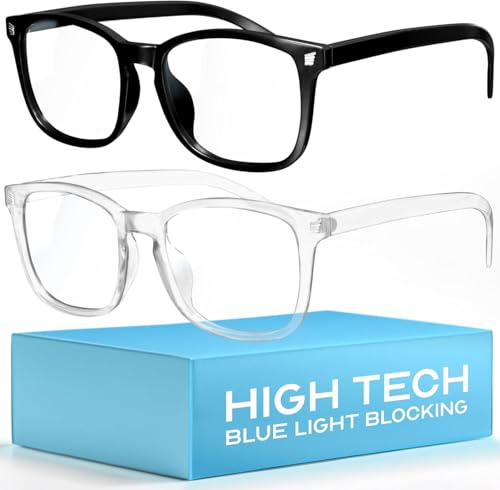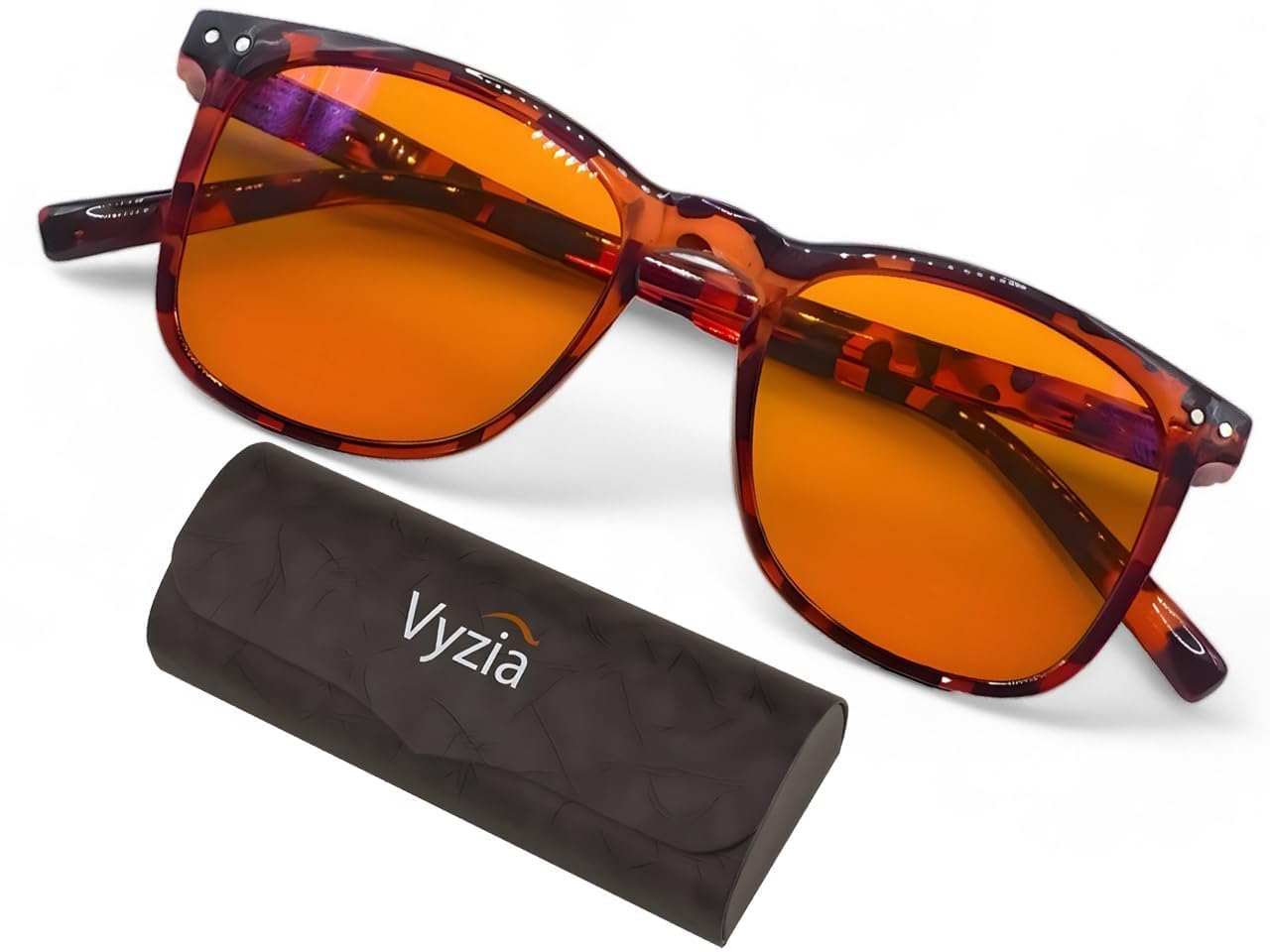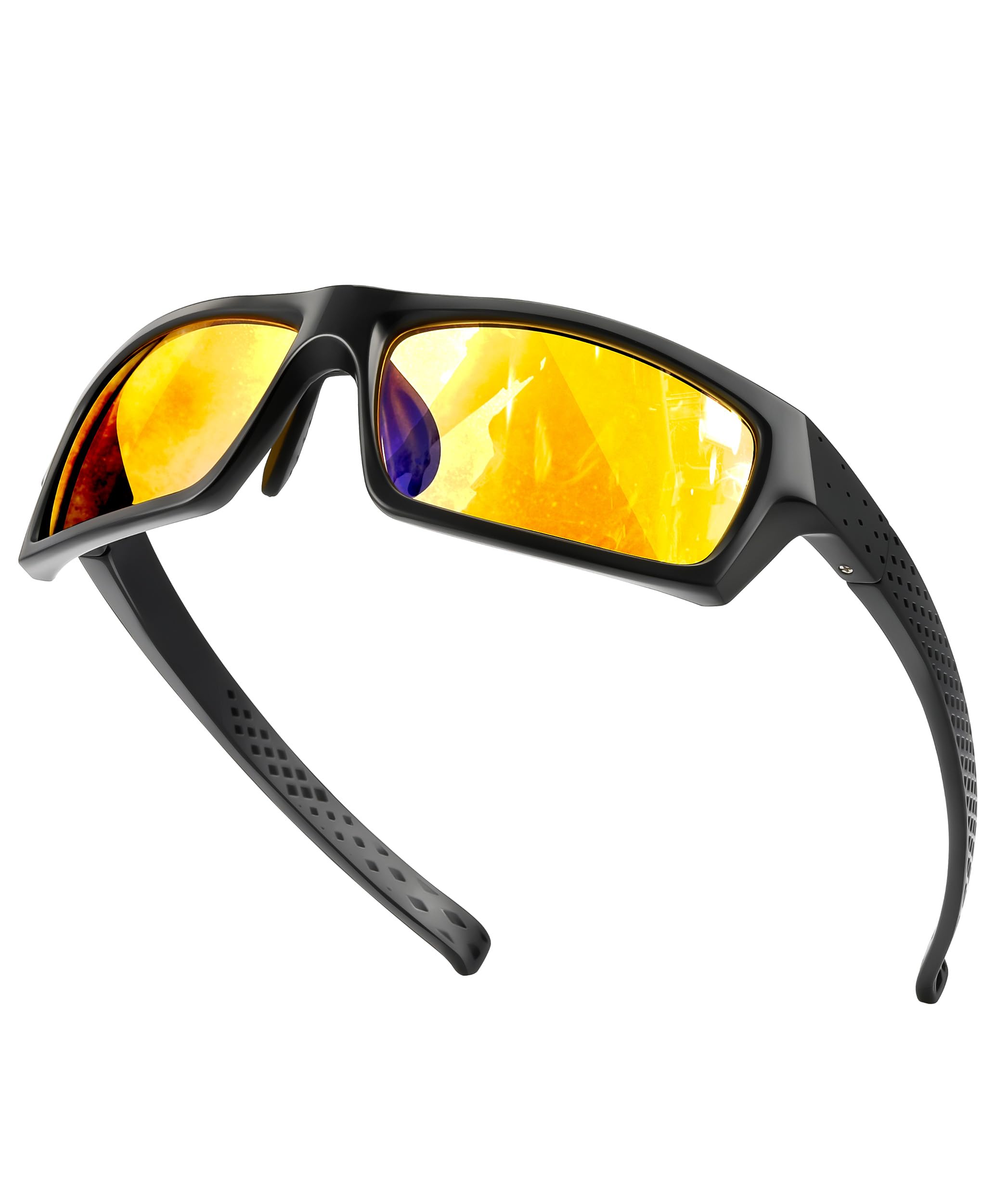Flying drones is a lot of fun, but staring at screens and remote controls makes my eyes feel tired. Blue light glasses help reduce eye strain and keep my vision clear while I’m flying, especially when I use a monitor or fly in bright light.
They block some blue light from screens and sunlight. This helps keep my eyes from feeling sore or tired after long sessions.
When I pick blue light glasses for drone flying, I focus on a few key things. The fit matters because I don’t want glasses that slide down my nose or feel uncomfortable.
I check the lens clarity. Some lenses have a yellow tint that can change what I see on the drone’s feed, so I try to find lenses that block blue light without messing up the colors.
I also think about durability. I might carry them outside or toss them in my bag.
Blue light glasses aren’t all the same. It’s worth taking the time to find a pair that feels good, looks clear, and fits my needs for flying drones.
I tested the most popular options to see which ones made my drone flights easier and more comfortable.
Best Blue Light Glasses for Drone Flying
I’ve put together my favorite blue light glasses for drone flying. Each one helps protect my eyes from screen glare so I can focus better and fly more comfortably.
Okany Blue Light Glasses
If you want comfortable, sturdy glasses for easier drone flying in front of a screen, the Okany Blue Light Glasses are a solid pick.
Pros
- The frames feel light but strong and stay put during long drone sessions.
- Amber lenses take the edge off bright screens and reduce glare.
- The nose pad’s shape helps the glasses fit without pinching or slipping.
Cons
- The yellowish tint can change the way some colors look.
- Switching between desk work and looking at screens isn’t always seamless with these on.
- They can feel a little oversized for smaller faces.
After wearing the Okany Blue Light Glasses for a full afternoon of reviewing drone footage indoors, my eyes felt less tired and dry than usual. The frame is super light, so I barely noticed it, even when I shifted between my computer and my controller.
They weren’t tight on my ears or nose, so I could keep them on without fussing. The amber tint really softened harsh screen light, especially in the late evening.
It took me a little while to get used to the tint. Papers on my desk and some natural colors looked a bit off, but it was worth it for long periods on displays.
The included packaging was a nice touch. These glasses feel much sturdier than other lightweight pairs I’ve tried.
I recommend checking them out if you want to ease eye strain during your flying sessions. Just keep in mind the lens tint makes colors look a little warmer than usual.
KMD Aero Blue Flight Training Glasses
These glasses work well for anyone who needs a reliable, lightweight view-limiting device during flight training.
Pros
- Very light and easy to wear for long flights
- Fits well with my headset without much discomfort
- The adjustable frames made it simple to find the right fit
Cons
- Felt a bit tight on the sides of my head after a while
- Frame can break the seal on noise-cancelling headphones
- Lenses could fog up in warm weather
When I tried out the KMD Aero Blue Flight Training Glasses, I noticed right away how light they felt. I didn’t get bothered by weight or bulk.
Sliding them on under my headset was smooth and comfortable. The adjustable frames clicked right into a snug spot and stayed put.
The glasses kept my focus on the instruments, but I still had enough room to see my main controls. The light blue lens helped cut glare from the cockpit displays.
After some time, the sides started to pinch a little, especially on the back of my ears. If it was warmer in the cockpit, the lenses fogged up, and I needed to wipe them once or twice.
The included carry bag kept the glasses protected in my flight bag. I think the value for this price is tough to beat.
Vyzia Blue Light Glasses
If you want blue light glasses that actually filter out blue light when flying drones or working late, these are worth a look.
Pros
- Blocks nearly all blue light, making screens look much less harsh
- Incredibly light, so it’s easy to forget I’m even wearing them
- The anti-glare feature helps in both indoor and outdoor light
Cons
- Lenses can feel a little too orange for some activities
- Only comes in a case, so it can scratch if not careful
- Sometimes makes it tough to focus on screens at night
I tried the Vyzia Blue Light Glasses for a week, especially while flying my drone and using my laptop at night. Everything with a blue or bright white tone turned yellow, which helped tone down harsh lights from my controller and screen.
My eyes didn’t feel as tired, even after a long session adjusting my flight settings or reviewing drone footage in low light. They’re lightweight and easy to keep on for hours.
I was impressed with how comfortable the fit was—even after a double battery flight, I didn’t get nose-bridge soreness like with heavier glasses. The anti-glare coating worked well during an evening flight at sunset, and there were fewer reflections off my lenses than I expected.
The world gets a much warmer look through these glasses. That strong orange color can be distracting if I’m working with color-sensitive details or in a dark room.
There’s no extra packaging, just the sturdy case, so I had to double-check for scratches when mine arrived. For drone pilots looking to cut down on eye fatigue and blue light during long flights at night or even just watching TV before bed, I found these Vyzia Blue Light Glasses helpful and easy to wear.
MVICRDU Amber Blue Light Glasses
If you want comfortable and effective blue light glasses for drone flying, these are a solid choice.
Pros
- Comfortable to wear for long flights
- Blocks nearly all blue light from screens
- Nose pads are soft and adjust well
Cons
- Amber tint can make colors look off
- Nose piece can be tricky for some users
- Frames have a sporty look that might not suit everyone
Sliding on the MVICRDU Amber Blue Light Glasses, I could tell they were designed for real use. The frames are soft and flexible, so I didn’t feel any squeeze on my temples or nose, even while wearing my drone headset.
The rubber nose pads and cutout temples made a difference for longer flights. I didn’t get annoying pinching or slipping after hours at the controller.
Out in the sun and facing my drone controls, my eyes felt relaxed. The glare from the screen and sunlight was less stressful thanks to the amber lenses.
My eyes didn’t itch or feel worn out, even after several battery cycles. The blue light filtering really cut down on strain after extended time looking at screens or tablets during flying sessions.
The color of the lenses does change how things look. If you’re used to seeing true-to-life colors while flying or editing video, the slight orange tint takes some getting used to.
The nose piece can also be tough; while it is soft and adjustable, I had to adjust it a bit at first to get it comfortable. For the price and comfort, MVICRDU Amber Blue Light Glasses made a noticeable improvement in both eye comfort and focus during my drone flights.
LIKSMU Blue Light Glasses
If you want comfortable blue light glasses that give your eyes a break while flying drones, the LIKSMU glasses are a good choice.
Pros
- Two lens options let me pick the right amount of blue light blocking
- Super lightweight, so I almost forget I’m wearing them
- Anti-reflective coating really cuts down on screen glare
Cons
- Packaging feels pretty cheap for the price
- Frames might be too small if you have a large face
- Not the most stylish option out there
When I tried the LIKSMU Blue Light Glasses while controlling my drone, my eyes didn’t get tired so quickly, even after a long outdoor session. Swapping between the clear and orange lenses was straightforward—clear for normal daylight flying, orange for when I needed extra blue light protection in the evening.
Wearing these glasses all day felt easy. They didn’t leave marks on my nose, even though I kept them on for hours while editing my drone footage.
Their super light build made a big difference during longer flights. The anti-reflective lens really helped me focus.
The only letdown for me was the cheap packaging—they showed up in a box that didn’t feel very sturdy. If you care more about comfort and function than style, these are worth considering.
Buying Guide
When I shop for blue light glasses for drone flying, comfort comes first. I look for lightweight frames and adjustable nose pads.
My glasses need to feel comfortable, even during long flying sessions. I also check for lens clarity.
I want lenses that do not distort colors or reduce sharpness. Clear details on my drone’s screen matter to me.
I check if the lenses have an anti-reflective coating to cut down on glare. I also make sure the blue light filter is actually helpful.
Here are some key features I consider:
| Feature | What I Look For |
|---|---|
| Fit & Comfort | Adjustable arms, lightweight materials |
| Lens Quality | Clarity, minimal tint, no distortion |
| Anti-Reflective | Coating to reduce screen glare |
| Durability | Strong frames and scratch-resistant lenses |
| UV Protection | Additional help blocking sunlight |
I always check the size before I buy. Glasses that are too tight or too loose become uncomfortable after a few minutes.
I read reviews or ask friends which glasses worked for them. Trying on different shapes and sizes helps me choose what feels best.
If I plan to fly outdoors, I pick glasses with UV protection. This gives my eyes extra safety from the sun.
